Data is king
How the intelligent gathering and use of data can improve the client experience…
Both data and transparency have been major features in discussions about the superyacht market in recent years and, more often than not, the terms are widely misunderstood. The gathering of data has received a bad press globally because of the penchant on the part of the world’s technology behemoths to record and sell data without users express permission or understanding. However, when data is collected honestly and used responsibly it has the ability to vastly improve the client experience. SuperyachtNews speaks with Burgess about how the market is evolving and how data is increasingly becoming the cornerstone of the superyacht experience.
“The pressure to change, or opportunity to change depending on your perspective, has been within the market for a number of years now,” starts Tim Davis, partner at Burgess and chief marketing officer. “What COVID has done is fast-tracked these developments slightly. But, I do think these opportunities were there pre-COVID because if you look at other luxury verticals, they have all pretty much been through significant change in recent years and I think that the superyacht market is probably one of the last luxury niches to go through that change.”
Whereas the brands of yore wielded a great deal of power when it came to guiding and influencing their consumers, contemporary consumption patterns have seen a shift towards brands implementing the changes that their customers demand. According to Davis, the superyacht market has traditionally been blessed by the fact that clients were traditionally content to follow the routes and processes provided by the industry and, as such, the market as a whole has been sluggish in its pace of development and willingness to embrace new technologies, processes and attitudes.
“As an industry, we are very good at customer service,” continues Davis. “However, when you compared the superyacht market to other analogous luxury markets, we have some way to go in terms of being equivalently customer-centric. The industry has, without a doubt, be very fortunate that business has come to us and whether you are big, small, a brokerage house or any other stakeholders, we are going to have to sharpen our pencils in what we do and there is an enormous amount to be learned from other industries and I think that superyacht fraternity has not always found it easy to look over the fence. Many industries, luxury or otherwise, have been disrupted by the consumer and it is always those brands that are willing to harness what the customer is saying that will be more successful than the others.”
Central to the Burgess and indeed Davis’ philosophy is that data will play an increasingly central role in both the business and the client experience. By collecting, storing and analysing data in a centralised and responsible fashion, Burgess hopes to streamline its sales and operational processes, increase business, attract new demographics of customer and improve the experience for any customer that engages the Burgess team across its various services.
“My biggest focus is making sure that the customer is represented in our business. Now, when you say that to a broker it can raise their hackles slightly because they know their clients inside out. But, do we know why they make the decisions they make? Other luxury brands do and I believe this is the way we have to go. We have a phenomenal database in terms of the quality and calibre of the individuals on that database. But, we have to hold that information in one central place so that relevant information is accessible throughout the business, which is slightly at odds with the traditional brokerage model. We want to be able to record, analyse and elevate seemingly trivial comments because it is the little things that make the difference to the superyacht experience.”
Given the sums of cash that are in play, there should be absolutely no scope for error within the superyacht industry, clients demand that we get it right first time. Traditionally, errors would have been mitigated by engaging in arduous periods of discussion and refinement. However, as a younger generation of UHNWIs enters the market place and members of the old guard become accustomed to contemporary sales processes and technologies, the antiquated systems that the superyacht market has relied on for so many years will simply not be satisfactory.
“Business leaders and UHNWIs already have a fantastic understanding of the value of data. If you ask them whether or not they are happy for us to capture relevant data in order to improve their experience, the vast majority would say yes, so long as the business can demonstrate how it is creating value for the client,” explains Davis. “A great focus for Burgess at the moment is how do we mobilise the business behind the data and the answer is twofold. Firstly, we have developed technically in terms of what systems and process are in place. Secondly, the biggest development has been cultural. By understanding the barriers to people inputting data effectively and impressing upon them the importance we become a lot more efficient and we are able to deliver a better service and ultimately drive customer-centricity.”
A major benefit of adopting data as a central tenet for any business is the natural by-product of developing evidence-based assessment as a growth tool. For many, data and its benefits remain intangible because of the lack of data available to them. However, for businesses that effectively collect and analyse data, it becomes a tool by which they can prove the effectiveness of a given method.
“This is a very powerful tool for business. Someone in marketing like myself can bang on about data all we like, but if I can show a salesperson that they missed out on an opportunity to generate revenue and earn commission by not considering the available data, then you are in a far stronger position to influence development,” says Davis. “Traditionally, the Burgess’ of this market, especially through individuals like Jonathan Beckett, have been market creators. Individuals like Jonathan created the superyacht market. But, if we want to continue to be market-leading, we can’t simply continue doing what we have done for the last 10-20 years. The market is made now and we must evolve to sustain it and grow it.”
For years now there has been widespread speculation about the superyacht market’s inability to capitalise on the rapid growth of UHNWIs that is visible globally. It could easily be argued, however, that the industry’s inability to attract new demographics of clients has much to do with the fact that the industry has been too focussed on itself and its traditional processes. Put simply, to attract someone new, perhaps you should try something new? At the beginning of this article, Davis referred to a shift away from brands influencing customers to customers influencing brands and superyachting is certainly a prime exemplar of the phenomenon. Indeed, it could be argued that the superyacht industry has been elitist and almost arrogant in its determination not to change.
“The question is, how do we engage and communicate with a variety of customers and how can we respond to what they want?” continues Davis. “In terms of the consumption of luxury today, I think it is far more about helping people to become who they want to be. Now, I know that sounds very dramatic, but this means the superyachts themselves potentially need to take a back step. At its very core, the superyacht market is the ultimate luxury travel platform. It is not so much about size and specifications – although there are still those for who this is key – it is about the creation of experiences that showcase the values of the client.”
Luxury means different things to different people. For some it may be sunning themselves in the South of France, for others, it may be joining in a scientific expedition to one of the poles. It could be argued that, in the past, the superyacht industry has been far too willing to reduce the requirements of superyacht owners to a narrow set to wants and demands and, it could be argued, that this is a by-product of poor use of data. How can we be sure, for example, that certain clients are not put off the superyacht industry because of the perceived elitism? Why, for instance, do we insist on using terms like galley and head for the kitchen and bathroom?
“For me, it is about shifting the perceived elitism of superyachting and making the market something aspirational,” explains Davis. “We need to make the market as personal as it can possibly be, ensuring that every stage of the client experience is bespoke and not just luxury. Bespoke does not necessarily mean that it has to be lavish, it means that, through the use of data, we can ensure that throughout the client experience we are speaking the right language and that we are placing their experiences as the central element of the service that we provide.”
It must be said that, in recent years, it is not only Burgess that has developed a greater appreciation for the shifting sands of luxury consumption. Indeed, many businesses are now putting a greater focus on experiences rather than the vessels themselves. However, only a business that has collected and analysed data effectively will be able to truly action these changes in a way that is both beneficial to the business and to the client. Attracting new clients to the superyacht market means understanding new people and if that last 10-20 years has taught us anything, it is that the status quo is not a tool for growth.
Profile links
NEW: Sign up for SuperyachtNewsweek!
Get the latest weekly news, in-depth reports, intelligence, and strategic insights, delivered directly from The Superyacht Group's editors and market analysts.
Stay at the forefront of the superyacht industry with SuperyachtNewsweek
Click here to become part of The Superyacht Group community, and join us in our mission to make this industry accessible to all, and prosperous for the long-term. We are offering access to the superyacht industry’s most comprehensive and longstanding archive of business-critical information, as well as a comprehensive, real-time superyacht fleet database, for just £10 per month, because we are One Industry with One Mission. Sign up here.
Related news
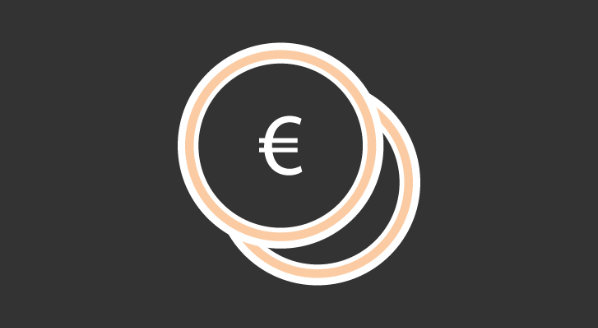
The end of French lease finance
James Neocleous of Jaffa & Co. explores the collapse of the leaseback scheme in France and the remaining options
Business
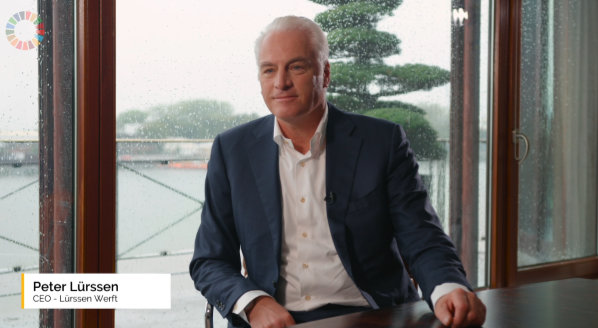
Lürssen talks sustainability
As part of the “50 Sustainability Climate Leaders” project, Lürssen discusses the work being done to protect the oceans
Business
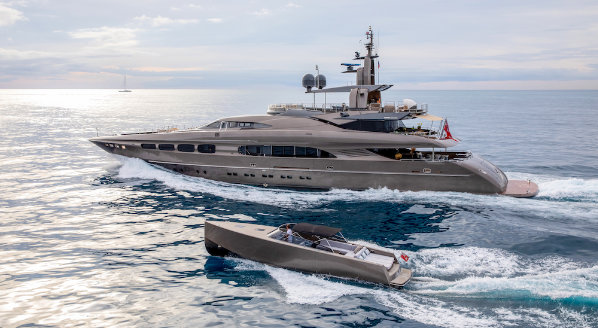
Partnerships, sustainability and well-being
YPI's director, Abdullah Nahar, discusses business development post-acquisition and working life during the pandemic
Business
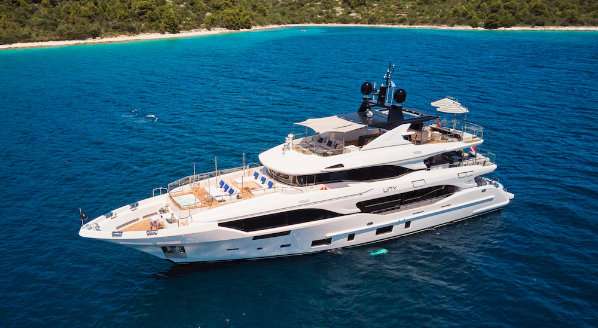
SeaNet sells fourth co-owned superyacht
SeaNet announces the sale of MY UNY, a 35m Benetti Mediterraneo for six like-minded owners
Owner

The Buyer Journey: Sea trials, handover and delivery
In many ways delivery may feel like the end of the buyer journey. But in reality, it’s just the beginning
Owner
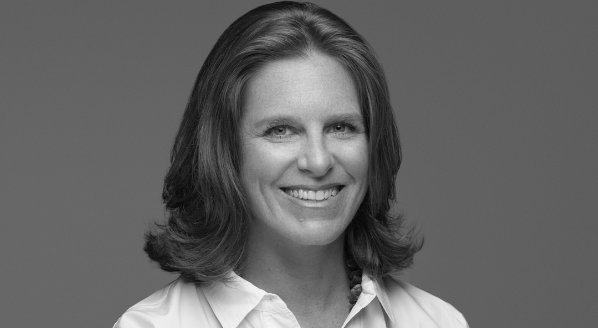
One to One: Barrett Wright
The president of Hill Robinson USA discusses the market realities ahead of the Caribbean season
Business
Related news
The end of French lease finance
5 years ago
Lürssen talks sustainability
5 years ago
Partnerships, sustainability and well-being
5 years ago
SeaNet sells fourth co-owned superyacht
5 years ago
One to One: Barrett Wright
5 years ago
NEW: Sign up for
SuperyachtNewsweek!
Get the latest weekly news, in-depth reports, intelligence, and strategic insights, delivered directly from The Superyacht Group's editors and market analysts.
Stay at the forefront of the superyacht industry with SuperyachtNewsweek




